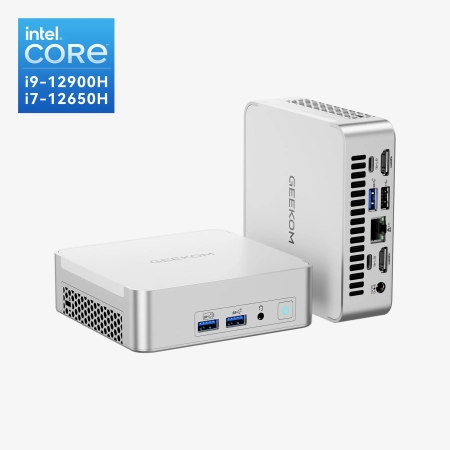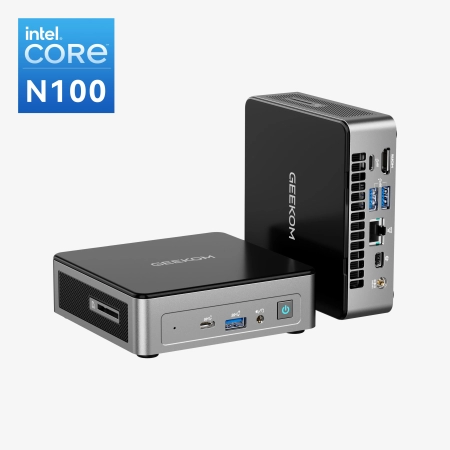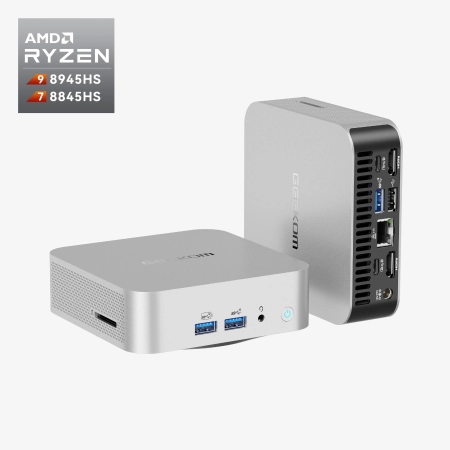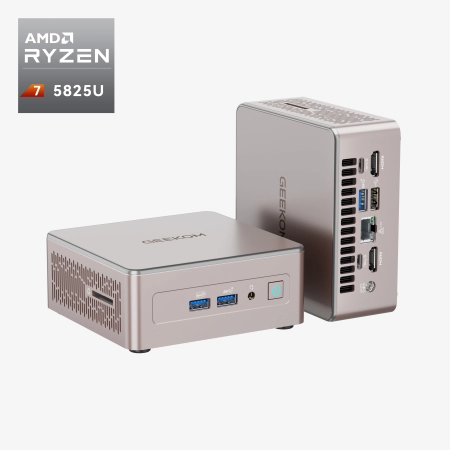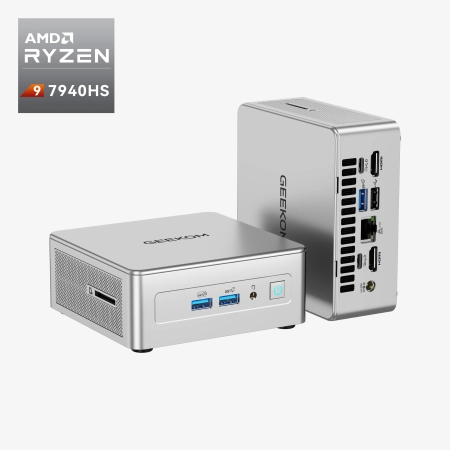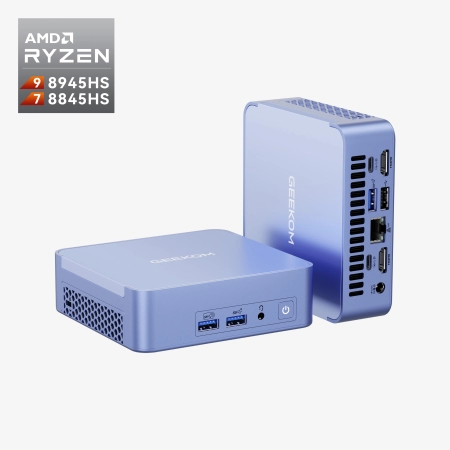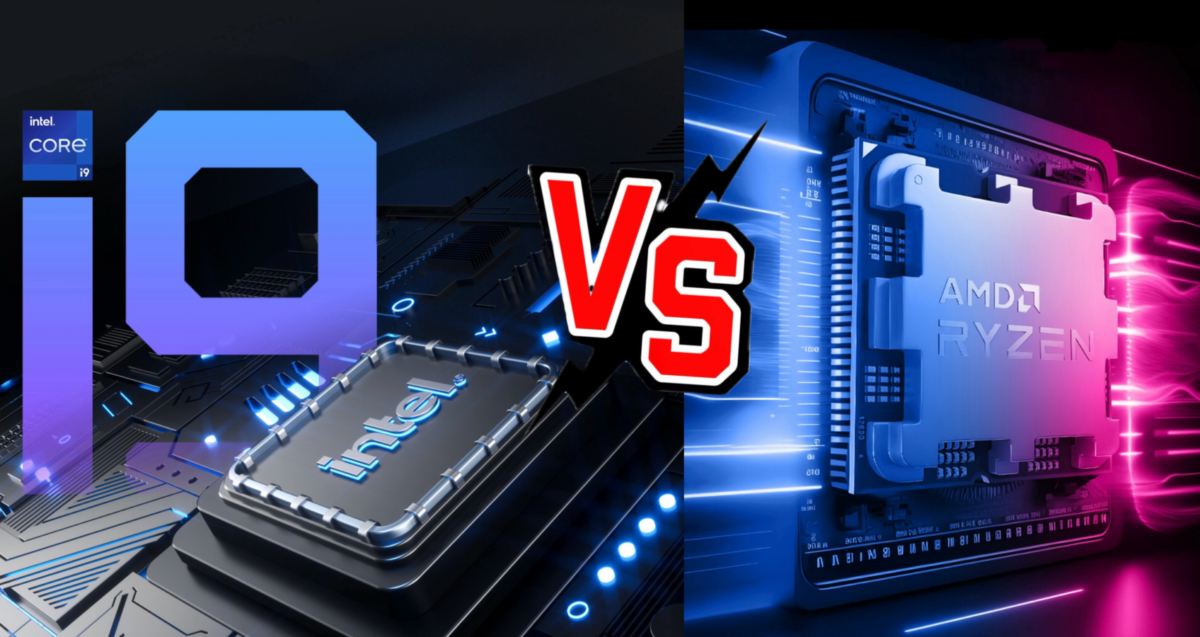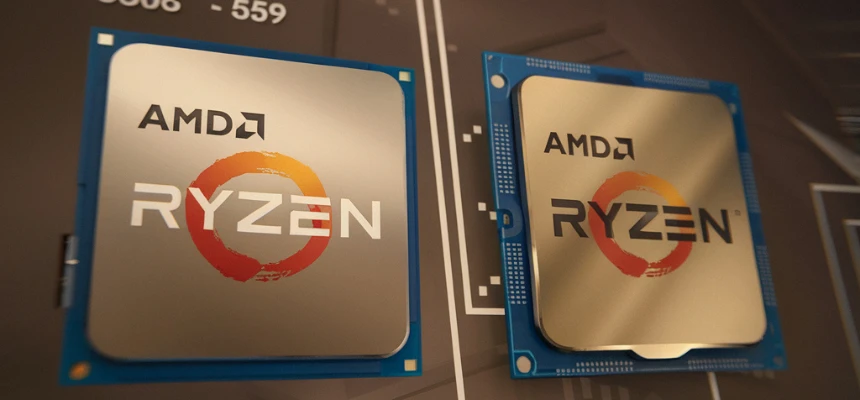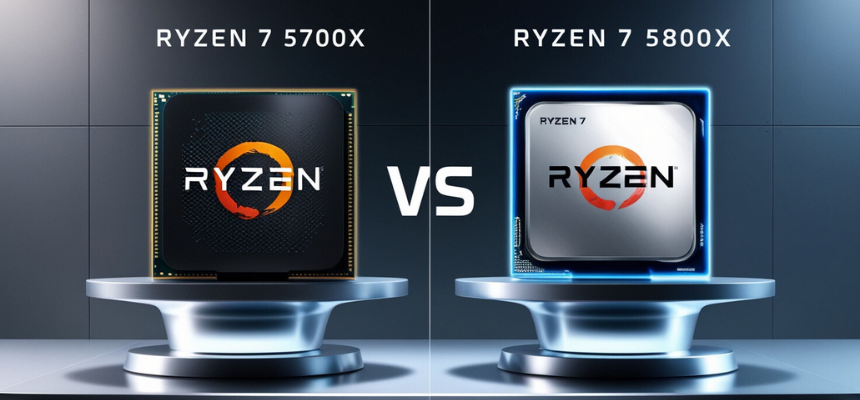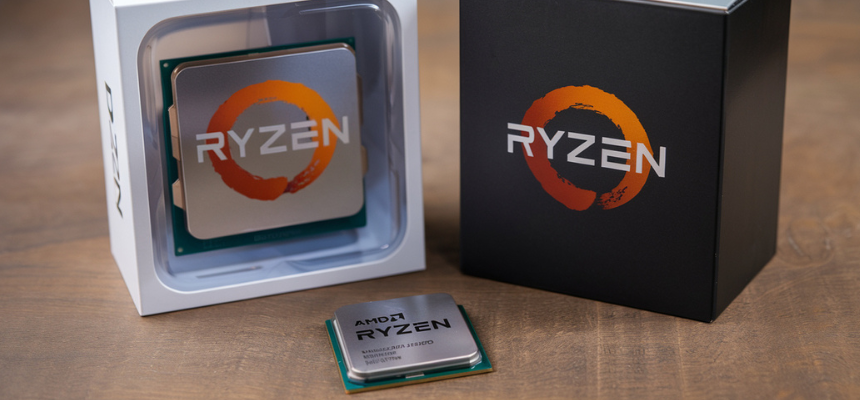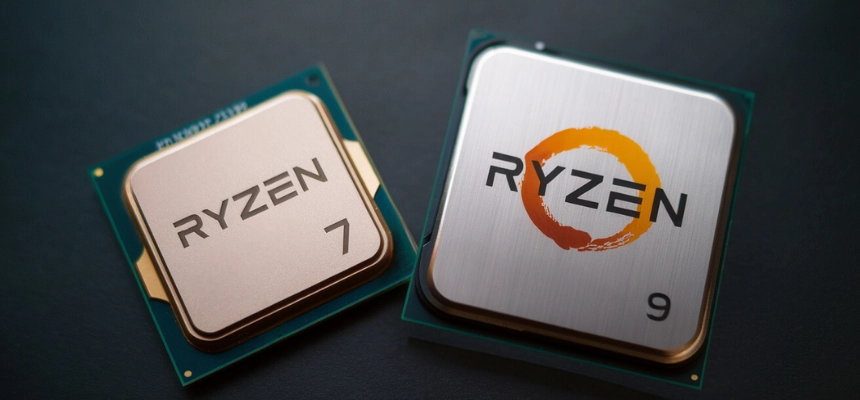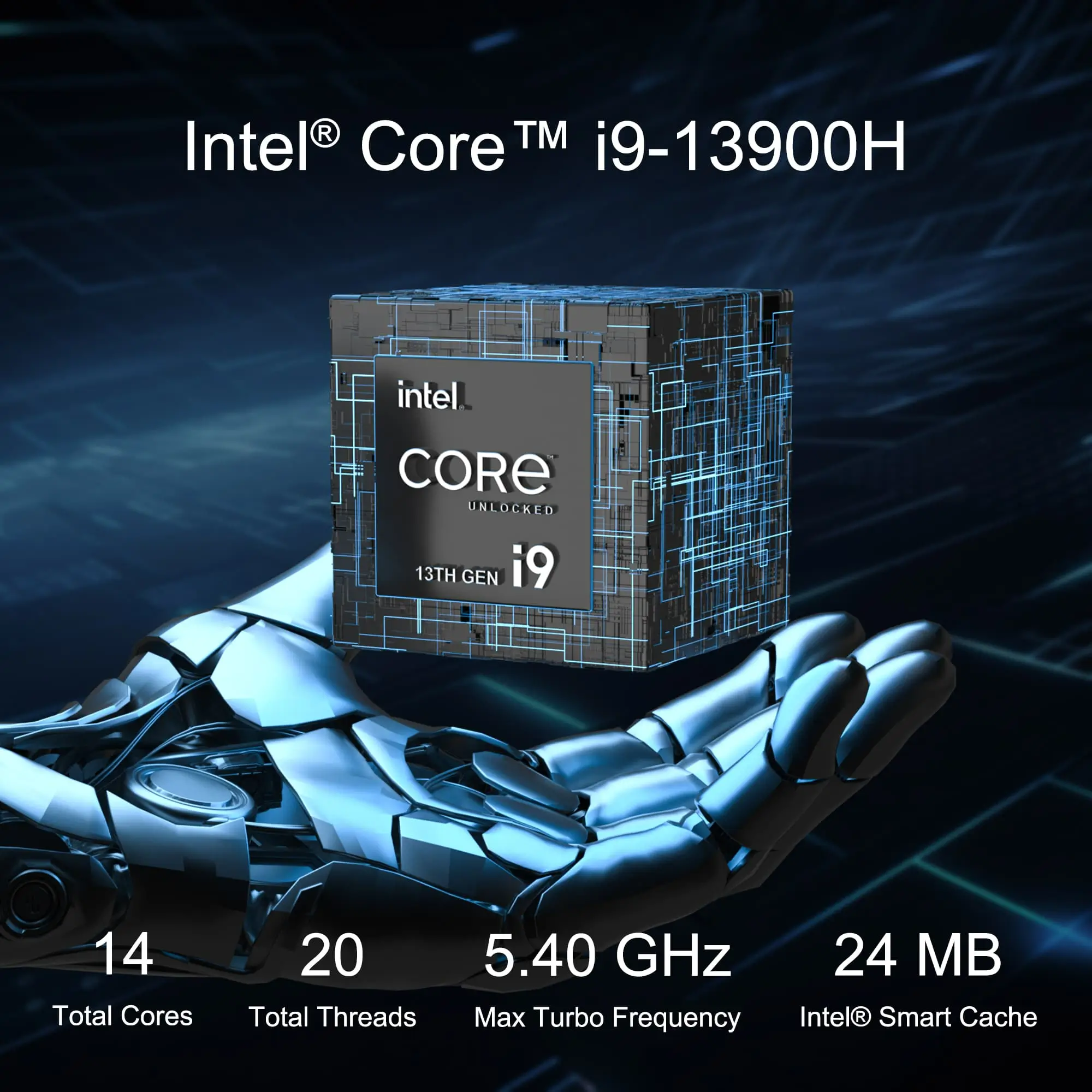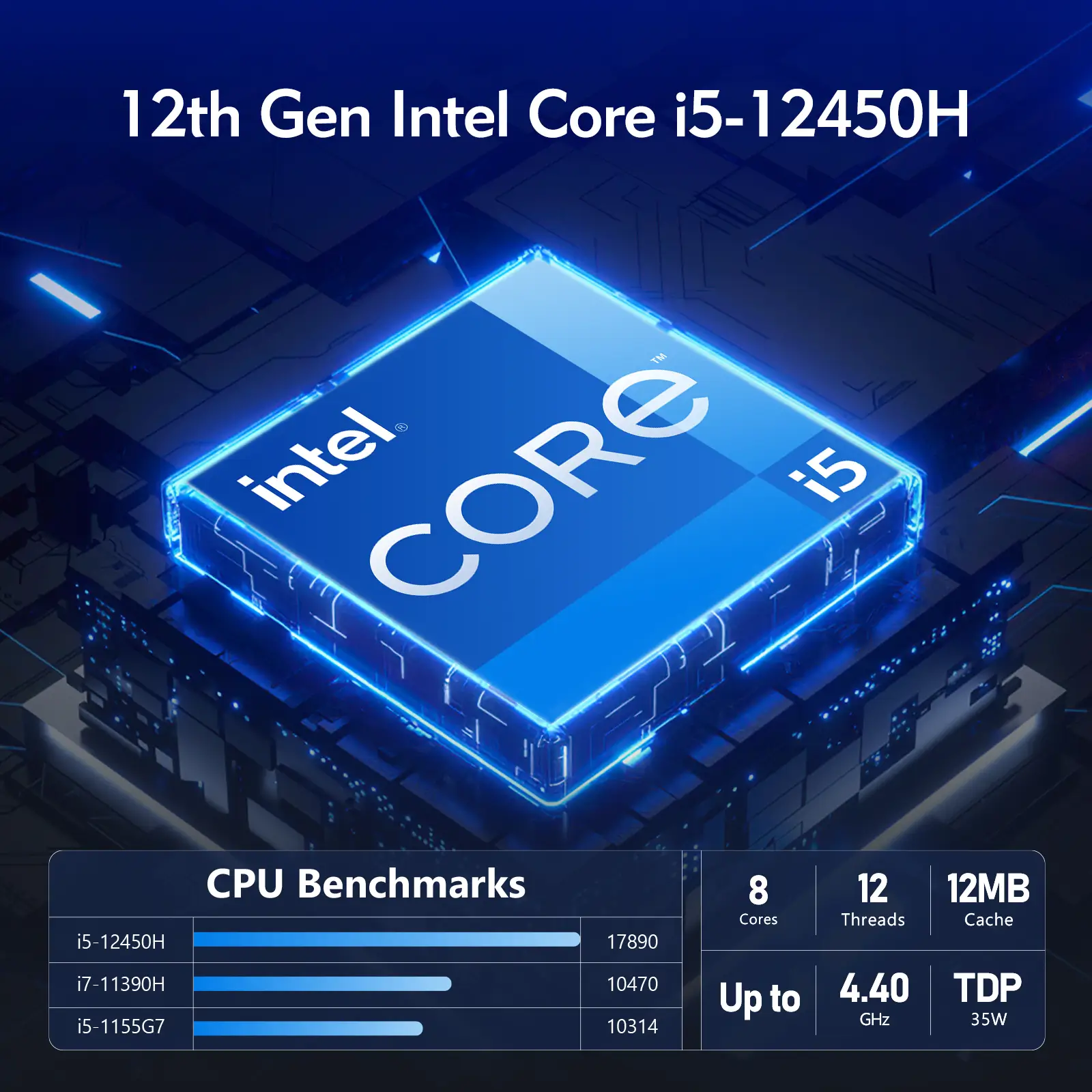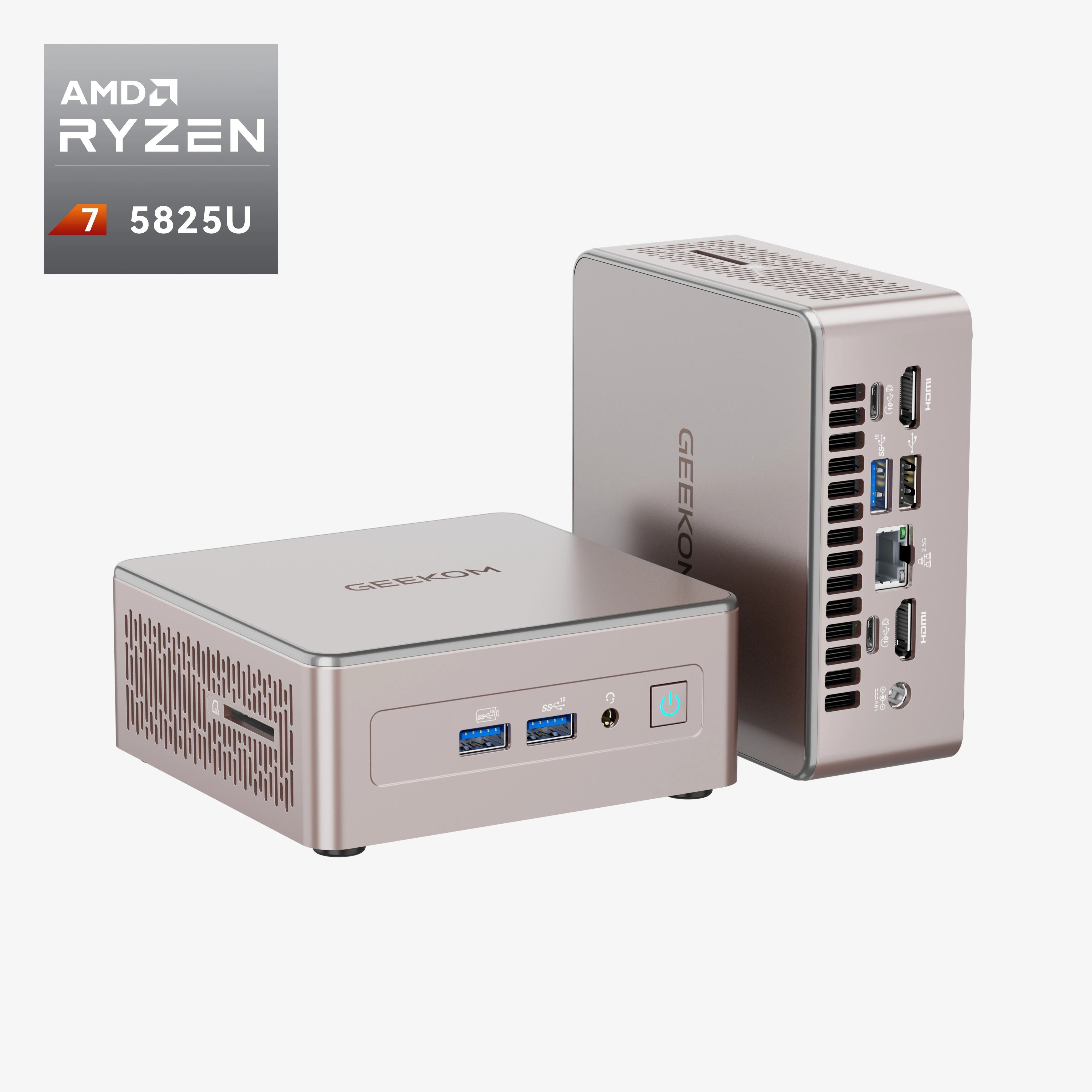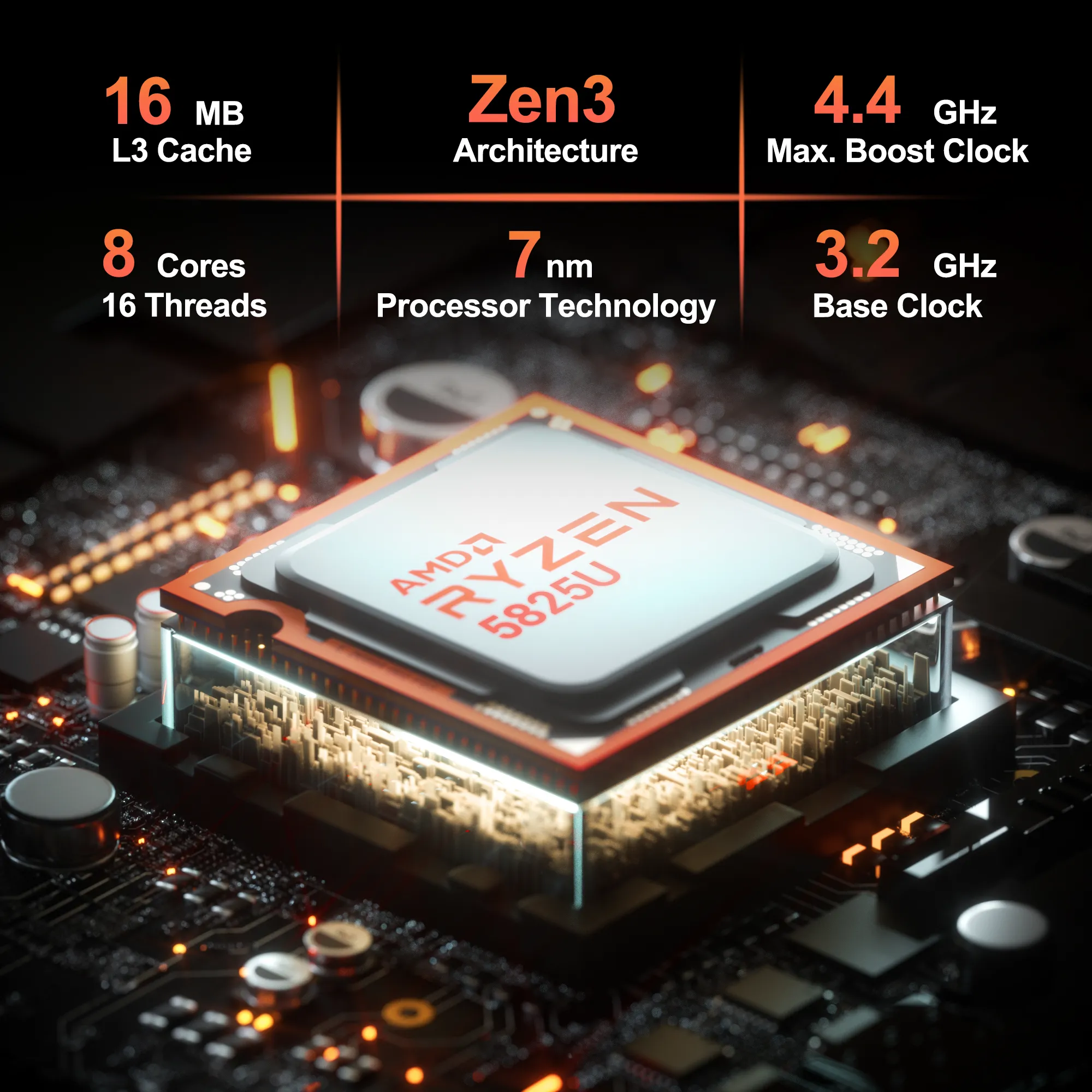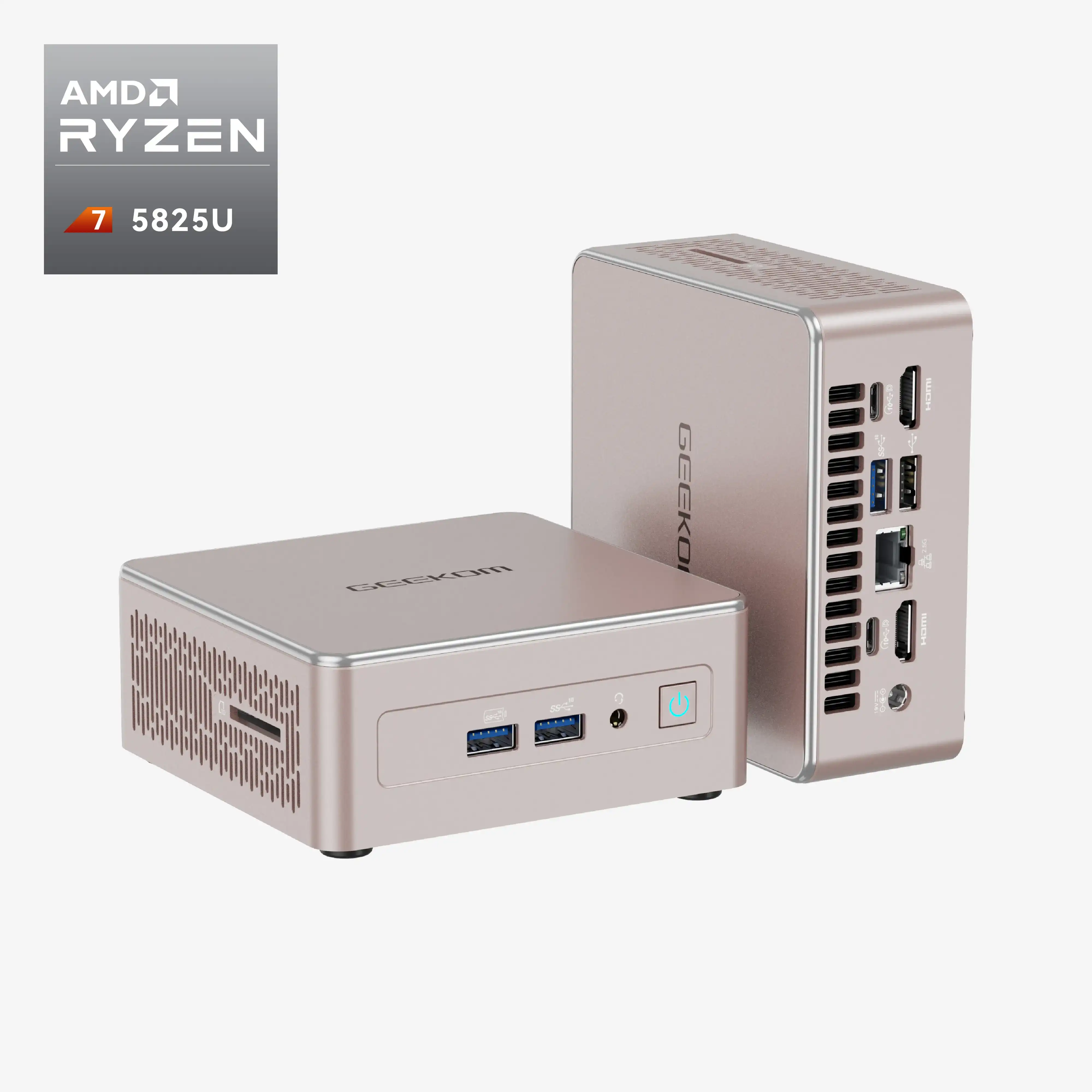The world of computing is a dynamic landscape, constantly evolving with advancements in technology. At the heart of this evolution lie the central processing units (CPUs), the brains that power our devices and enable them to perform complex tasks. In the realm of high-end processors, two names stand out as titans of performance: Intel Core i9 and AMD Ryzen 9. You may wonder which one will surpass.
Unless brand loyalty rules you, choosing between these CPU titans is tough, so let’s scrutinize AMD and Intel’s flagship chips to find the best fit.
This taps into the key points that:
-
- It’s difficult to choose unless you favor one brand
-
- The comparison aims to help select the most suitable option
-
- It will analyze AMD and Intel’s leading processors
-
- To determine which provides the optimal solution
Today, we delve into this performance showdown, exploring the key features, specifications, and target markets of these formidable processors.
Intel Core i9 vs. AMD Ryzen 9: A Comprehensive Comparison of Key Metrics
Core Count and Clock Speed
At the heart of any CPU comparison lies the core count and clock speed. Core count refers to the number of independent processing units within a CPU, while clock speed, measured in gigahertz (GHz), indicates how many cycles a CPU can execute per second.
Intel Core i9 processors offer up to 16 cores, while AMD Ryzen 9 processors can boast up to 32 cores. This significant difference in core count directly impacts multi-threaded performance, making AMD Ryzen 9 processors better suited for tasks that can leverage multiple CPU cores simultaneously, such as video editing, rendering, and scientific computing.
Clock speed, on the other hand, plays a crucial role in single-threaded performance, which is essential for tasks that rely on individual CPU cores, such as gaming and high-end productivity applications. Intel Core i9 processors generally have a slight edge in clock speed, reaching up to 5.5 GHz compared to AMD Ryzen 9’s 5.7 GHz. This difference, while small, can translate into noticeable performance gains in certain applications.
Threads and Instruction Set Architecture
Threads are virtual cores that allow a single physical core to handle multiple tasks simultaneously. Hyperthreading, a technology developed by Intel, enables a CPU to execute multiple threads per core. AMD’s SMT (simultaneous multithreading) technology achieves similar results.
Intel Core i9 processors can support up to 32 threads, while AMD Ryzen 9 processors can handle up to 64 threads. This increased thread count further enhances the multi-threaded performance of AMD Ryzen 9 processors, making them ideal for tasks that can benefit from parallel processing.
The Instruction Set Architecture (ISA) is another important factor to consider. The ISA is the set of instructions that a CPU can understand and execute. Different CPU architectures, such as Intel x86-64 and AMD x64, have different ISAs.
Both Intel Core i9 and AMD Ryzen 9 processors utilize the x64 ISA, ensuring compatibility with a wide range of software and operating systems.
Cache Memory, Memory Support, and TDP
Cache memory is a high-speed memory that stores frequently accessed data, reducing latency and improving performance. L1 cache is the fastest, followed by L2 and L3 cache.
Intel Core i9 processors can have up to 24.5 MB of L3 cache, while AMD Ryzen 9 processors can boast up to 100 MB of L3 cache. This significant difference in L3 cache size can provide a performance boost for certain applications, especially those that rely on large datasets.
Memory support is another crucial aspect of CPU performance. DDR4 and DDR5 are the current mainstream memory standards. Both Intel Core i9 and AMD Ryzen 9 processors support the latest DDR5 memory, ensuring compatibility with the fastest and most efficient memory options available.
Thermal Design Power (TDP) measures the maximum heat that a CPU generates under typical workloads. A lower TDP indicates better energy efficiency. Intel Core i9 processors generally have a higher TDP than AMD Ryzen 9 processors, consuming up to 125 W compared to AMD’s 105 W. This difference in TDP can impact power consumption and cooling requirements.
Integrated Graphics and Overclocking Potential
Integrated graphics, also known as iGPU, is a graphics processing unit (GPU) built into the CPU. While not as powerful as dedicated GPUs, iGPUs can handle basic graphics tasks like web browsing and video playback.
Both Intel Core i9 and AMD Ryzen 9 processors offer integrated graphics options. Intel’s UHD Graphics and AMD’s Radeon Graphics provide varying levels of performance, with AMD’s options generally offering better graphics capabilities.
Overclocking is the process of increasing the clock speed of a CPU beyond its manufacturer’s specifications. This can improve performance, but it also increases heat and power consumption.
AMD Ryzen 9 processors generally have higher overclocking potential than Intel Core i9 processors, allowing users to push the limits of performance further.
Benchmarks
Benchmarks are standardized tests that measure the performance of a CPU in various tasks, such as processing, gaming, and graphics rendering.
Both Intel Core i9 and AMD Ryzen 9 processors perform well in benchmarks, with each excelling in different areas. Intel Core i9 processors typically have a slight edge in single-threaded performance benchmarks, while AMD Ryzen 9 processors generally outperform in multi-threaded benchmarks.
Intel Core i9-13900H vs. AMD Ryzen 9 6900HX
The latest entries in the high-end CPU arena are the Intel Core i9-13900H and AMD Ryzen 9 6900HX. These processors offer significant performance advancements over their predecessors, making them compelling choices for demanding users.
The Intel Core i9-13900H builds upon the success of the Core i9-12900H, offering a hybrid architecture with both Performance and Efficient cores for improved performance and efficiency. It boasts up to 16 cores and 24 threads, along with enhanced single-threaded performance and overclocking potential.
On the other hand, the AMD Ryzen 9 6900HX represents the pinnacle of AMD’s Zen 4 architecture. It features 16 cores and 32 threads, along with improved single-threaded performance and lower power consumption compared to its predecessor.
Here is a comparison chart between the Intel Core i9-13900H and AMD Ryzen 9 6900HX mobile processors:
Specification |
Intel Core i9-13900H |
AMD Ryzen 9 6900HX |
CPU Model |
Core i9-13900H |
Ryzen 9 6900HX |
Architecture |
Intel Raptor Lake |
AMD Zen 3+ |
Cores/Threads |
14C/20T |
8P/16T |
Base Clock |
2.2GHz |
3.3GHz |
Max Boost Clock |
5.3GHz |
4.9GHz |
Cache |
24MB |
20MB |
TDP |
55W |
45W |
Graphics |
Intel Iris Xe |
AMD RDNA 2 |
Memory Support |
DDR5, DDR4 |
DDR5, LPDDR5 |
Battery Life |
Up to 12 hrs |
Up to 12 hrs |
Price |
$349+ |
$299+ |
Key Highlights:
-
- Intel has more cores but Ryzen has more threads
-
- Ryzen is manufactured on a more advanced 5nm node
-
- Core i9 has a higher max boost but Ryzen has a higher base clock
-
- Core i9 has a slightly higher TDP meaning less efficient
-
- Both support the latest memory and offer integrated graphics
-
- Battery life and pricing are competitive between models
A comparison of the Intel Core i9-13900H vs. AMD Ryzen 9 6900HX in a variety of application scenarios
Gaming
Gaming is one of the most popular uses for high-performance laptops. Both the Intel Core i9-13900H and AMD Ryzen 9 6900HX are excellent gaming processors, and they can handle even the most demanding games with ease.
In general, the Intel Core i9-13900H offers a slight edge in gaming performance. This is due to its higher clock speeds and larger cache. However, the AMD Ryzen 9 6900HX is still a very capable gaming processor, and it is a good option for gamers on a budget.
For the PC gamer, the choice of processor isn’t the only factor to consider, especially when it comes to playing both newer and older games. In addition to the Intel Core i9-13900H or AMD Ryzen 9 6900HX, having a high-performance graphics card is crucial to ensuring smooth gameplay and enhanced visuals. While modern titles push your system to its limits, older games often benefit from the improved processing power and advanced graphics card technology, delivering better frame rates and overall performance than when they were originally released. For gamers looking for the best overall experience, balancing a powerful CPU with a top-tier graphics card is key to dominating both classic and modern titles.
Content Creation
Content creation is another popular use for high-performance laptops. This includes tasks such as video editing, graphic design, and 3D rendering.
Both the Intel Core i9-13900H and AMD Ryzen 9 6900HX are excellent processors for content creation. They both offer a lot of cores and threads, which is important for these types of tasks.
In general, the AMD Ryzen 9 6900HX offers a slight edge in content creation performance. This is due to its higher multi-threaded performance. However, the Intel Core i9-13900H is still a very capable content-creation processor, and it is a good option for users who need a processor that can also handle gaming.
Productivity
Productivity is a general term that encompasses a variety of tasks, such as web browsing, word processing, and email.
Both the Intel Core i9-13900H and AMD Ryzen 9 6900HX are more than powerful enough for any productivity task. They both offer more than enough cores and threads to handle even the most demanding workloads.
In general, the Intel Core i9-13900H offers a slight edge in productivity performance. This is due to its higher single-threaded performance. However, the AMD Ryzen 9 6900HX is still a very capable productivity processor, and it is a good option for users who need a processor that is also good for gaming and content creation.
The latest model comparison: AMD Ryzen 9 7940HS vs. Intel Core i9-14900HX – A new power showdown
This year Intel and AMD in the field of mobile processor competition is still white-hot, the 13th generation of Intel Core and AMD Ryzen 7000 series of head-to-head showdown is also difficult to avoid, today we will look at the Intel 13th generation of Core i9-13900H and AMD Ryzen 9 7940HS two top processors of the performance of the performance of the two to what is the difference between the two?
The new AMD Ryzen 9 7940HS processor is based on the TSMC 4nm FinFET manufacturing process, the CPU architecture is upgraded to Zen 4, the GPU architecture is upgraded to RDNA 3, a generation of products to achieve the three major upgrades, which can be said to be rare in the history of the development of processor products. This processor adopts a full large-core design, with 8 large cores and 16 threads, an acceleration frequency of up to 5.2GHz, a cache of 24MB, a TDP of 35-54W, and comes with Radeon 780M integrated graphics. Generally speaking, this processor is better suited for tasks like video encoding, compression/decompression, and physical rendering during gaming can also perform well.
Next, take a look at the 13th generation Core i9-13900H. it is one of the top processors in the 13th generation Core family, with specifications that are only slightly lower than the i9-13980HX as well as the i9-13950HX in frequency, while the core count, process, cache, and other parameters are exactly the same. It is based on Intel’s 7 process and has 14 cores and 20 threads, 8 of which are performance cores and 16 are energy efficiency cores. The performance cores can be up to 5.4GHz, and the energy-efficiency cores can be up to 3.9GHz, with 24MB of L3 cache and a base TDP of 35W. This series is also the first batch of mobile-grade processors in Intel’s 13th-generation Core family, and its performance performance is very much expected, as its package specifications are actually aligned with the 13th-generation desktop-grade processors.
Conclusion:
If you’re focused on gaming and single-threaded performance, the Intel Core i9-13900H provides an edge due to its higher clock speeds. However, for multi-threaded applications like content creation, the Ryzen 9 7940HS delivers better power efficiency and integrated graphics performance.


Final Thoughts
Choosing the CPU titans between AMD chip and Intel chip can be tough, but by carefully considering the key features, specifications, and target markets, you can make an informed decision that best suits your needs.
For gamers seeking the absolute pinnacle of gaming performance, the Intel Core i9-13900H’s higher clock speeds and larger cache provide a slight edge. However, for content creators who demand exceptional multi-threaded performance, the AMD Ryzen 9 6900HX shines with its higher thread count and improved multi-threaded performance.
Ultimately, the choice between Intel Core i9 and AMD Ryzen 9 hinges on your specific needs and preferences. If raw gaming power is your priority, the Intel Core i9-13900H is the champion. But if multi-threaded performance and efficiency are paramount, the AMD Ryzen 9 6900HX is the reigning victor.
Generally speaking, whether you’re a gamer, a content creator, or a productivity powerhouse, both Intel Core i9 and AMD Ryzen 9 are poised to deliver exceptional experiences for years to come.
Experience the next generation of computing with GEEKOM mini PCs, designed to deliver revolutionary CPU power in a compact form. When comparing mini PCs, you’ll find unmatched performance, versatility, and portability all packed into this space-saving, energy-efficient device. Discover how GEEKOM stands out in the mini PCs comparison, leading the way into the future of computing.




